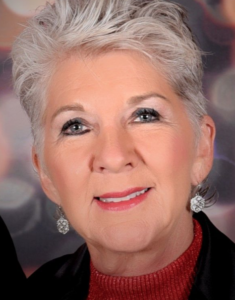According to the latest U.S. Census Bureau statistics, Kentucky remains one of the most rural states in the nation, with more than 41% of our 4.5 million residents living in small- and medium- sized communities.
I have been proud to devote my 40-plus-year career to serving the rural citizens of the Commonwealth through a variety of roles in the public, private and non-profit sectors. And from the fertile farmlands of Western Kentucky to the majestic mountains of Eastern Kentucky, I’ve seen firsthand the crucial role digital connectivity plays in enhancing economic development, educational opportunities and overall quality of life.
Whether it’s providing telehealth services to seniors in Ballard County or remote work options to young adults in Breathitt County, next-generation Internet access holds great promise to improve the well-being of Kentuckians across our state.

While we have seen strides in connectivity over the past several years there is so much more needed to fully close this digital divide. We must leverage every tool at our disposal to ensure more Kentuckians, regardless of geographic location, are able to unlock the power of new technological advancements.
One such tool is fully leveraging 5G networks powered by licensed spectrum to allow uninhibited connectivity to devices and empower users. Even as a longtime advocate for fiber optic infrastructure to the home, I also recognize the important role wireless technologies play in providing both online access and emergency services.
This is not a new issue. In fact, I was appointed to the U.S. Department of Commerce’s National Telecommunications & Information Administration (NTIA) Commerce Spectrum Advisory Committee to help study the vital and limited national resource of wireless spectrum way back in 2006.
Currently, the Federal Communications Commission’s (FCC) spectrum authority has lapsed, which means they are unable to host any more spectrum auctions or grant licenses for new use. While the effects of this change are subtle now, the longer this lapse goes on the more its impact will be felt. Network operators, businesses, and consumers will be constrained in their Internet use, resulting in more network congestion that will degrade the user experience.
The FCC must be allowed to work collaboratively with the U.S. Department of Defense (DOD) and NTIA to enable spectrum deployment to get started as soon as possible. When federal bureaucracies reach a stalemate, our citizens lose; and finding a solution that effectively balances national security and public access is absolutely essential to helping promote the deployment of 5G services in underserved areas.
Digital connectivity for rural communities is not optional, and this action is crucial to ensuring that all our citizens have access to full power spectrum to utilize new devices, innovation and opportunity.
Please join me in encouraging our federal policymakers to take the next step in closing America’s digital divide. Rural Kentuckians are counting on us to continue full speed ahead with the progress we’ve made in harnessing wireless technologies to transform our communities.
Hilda Legg served as U.S. Department of Agriculture (USDA) Rural Development Kentucky State Director under the Trump Administration. She has also previously served in leadership roles with the USDA Rural Utilities Service (RUS), the Appalachian Regional Commission (ARC), and the Center for Rural Development.

















